Collateral damage as ALP’s state war draws federal blood
There are far-reaching consequences for Anthony Albanese as a result of a corruption inquiry into the Victorian branch of the ALP.
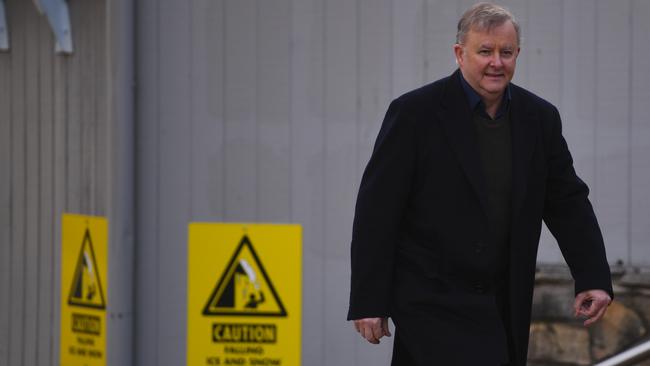
No matter how much federal MPs try to limit the damage to Labor’s profile by concentrating on the Victorian branch and playing up the speed of Daniel Andrews’s ministerial sackings and the extent of the national takeover, the political havoc can’t be limited to south of the Murray and north of Bass Strait.
The federal Opposition Leader, deputy Richard Marles and some other Victorian federal frontbenchers have sought to distance national Labor and the leadership from the explosive revelations on the Nine Network’s 60 Minutes last Sunday of branch stacking, the creation of ghost Labor Party members, factional power plays, interference in the selection of MPs, foul-mouthed plotting and deep personal animosities.
But it’s impossible and hasn’t been handled well — no matter how quickly Albanese and the Victorian Premier moved to sack and expel the disgraced cabinet minister, Adem Somyurek, at the centre of the covert audio and video recordings and now at the heart of an inquiry from Victoria’s corruption watchdog and police investigations.
Ironically, the speed and especially the extent of the intervention of the ALP’s national executive to disenfranchise all Victorian ALP members and affiliated unions from preselections, conference delegate votes and a role in any leadership ballot until well beyond the next state and federal elections is one of the key points of internal dissent.
Unions are angry that the huge amounts they pay to be affiliated with the ALP are being negated, they are being denied a fair role in the operation of the Labor Party, they have been headed off from forming a new Right power base and muzzled over opposition to Andrews’s support for China’s controversial Belt and Road investment vehicle. They are considering legal challenges.
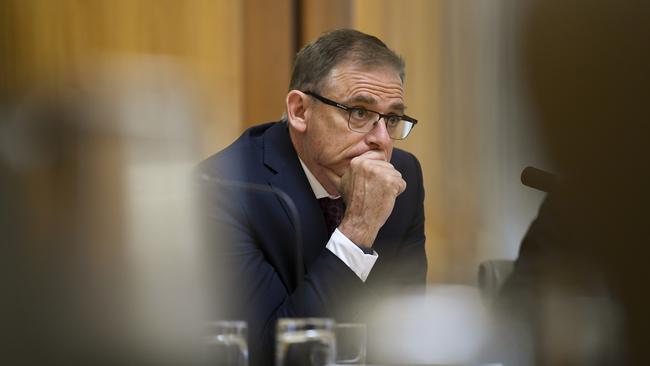
On Friday, when asked about the implications for federal Labor MPs from Victoria, including Anthony Byrne, who was central to the apparently incriminating recordings, Albanese defended his colleagues and the takeover of the Victorian branch.
“I have full confidence in the team in Canberra, and all the team,” he said on the by-election campaign trail in the NSW seat of Eden-Monaro, which is his first electoral test as Labor leader.
He tried to reassure people of the speed and effectiveness of the national intervention, including the appointment of ALP elders Steve Bracks and Jenny Macklin as administrators.
“They are two people whose integrity is without question. They’re two people who’ve made an enormous contribution to public life. I await their review and recommendations that they’ll make to the national executive,” Albanese said.
“I’m sure the national executive will adopt whatever it is they recommend going forward because of the standing of these people. We acted swiftly. We acted clearly. We’re now getting on with the job.”
Unfortunately for federal and Victorian Labor it hasn’t ended the scandal and the political ramifications, both internally and publicly.
There are several continuing and contested federal aspects of the biggest intervention in the Victorian ALP branch since Gough Whitlam took over, which Albanese was keen to point out. Obviously, there are police and Victorian Independent Broad-based Anti-Corruption Commission inquiries into alleged corruption and fraud because of thousands of fake ALP memberships used to stack branches and control the preselection of federal MPs from Victoria.
Texts between Byrne and Somyurek, his one-time ally and friend, show that Byrne told Somyurek he intended to retire and alerted him so the Victorian powerbroker could “decide” who would replace him.
This included the prospect of Somyurek going to Canberra himself as the MP for Holt and forming his own power base within the federal Labor caucus supported by various right-wing unions.
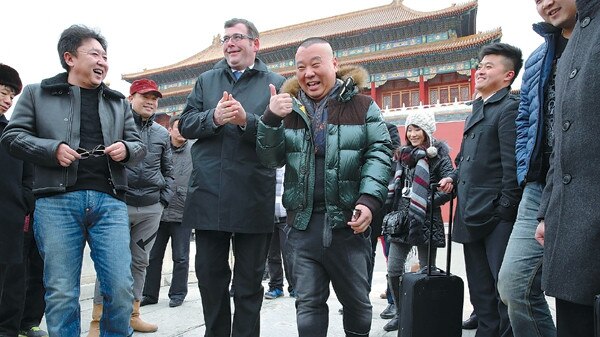
The branch stacking, on an “industrial scale” with thousands of false memberships over the years, raises the legitimacy of sitting Victorian ALP members.
The national executive intervention means all sitting federal Labor MPs and senators will be automatically endorsed for the next election, which ensures another term for Byrne and senior Left senator and powerbroker Kim Carr, who might have faced an internal challenge.
The disenfranchisement of rank-and-file members and affiliated trade unions in preselections, federal and state until 2023, the appointment of delegates to the national conference and any leadership ballots has angered many.
There is deep concern that the breadth and length of the intervention is overreach that provides too much power to Andrews and Albanese, both of the Left, and threatens relations with unions and the right wing which has becoming increasingly concerned about Chinese government influence within the Andrews government.
Senior Victorian Labor figures are concerned that Andrews may be tempted to go too far in a factional rebalance as he remakes the Victorian branch in the wake of the destruction of the nascent Somyurek right-wing group.
While part of the aim in removing Somyurek was to re-establish the old Left-Right “stability agreement”, which includes Carr, it is possible a pattern of destructive factional warfare will re-emerge.
This is in addition to removal of the Victorian branch membership from the process of contributing to the ALP national conference.
But these long-term issues, including the likelihood of publicity coming from corruption inquiries all the way to the next federal election, have been put into the background this week as Albanese has tried to deal with the complex question of Byrne’s role in the covert taping of alleged criminal behaviour in his Victorian parliamentary office.
After Sunday’s television revelations, Albanese avoided and even refused to speak about Byrne’s role on the grounds that he didn’t know at first it was his Holt electorate office, that it was illegal to speak to a witness of an IBAC inquiry and there were police investigations.
Then, on Thursday, he disclosed he had indeed spoken to Byrne and sought an assurance he done nothing “illegal”, backed the MP and specifically vouched for him as deputy chairman of the powerful parliamentary joint committee on intelligence and security despite questions about the protocol of covert taping in an MP’s office, particularly one who receives state secrets.
Federal deputy opposition leader and defence spokesman Marles said: “Anthony Byrne has been a wonderful servant of his community and of Labor throughout his career. He has played and continues to play a really important role, particularly on the parliamentary joint committee on intelligence and security.”
The Coalition’s chairman of the committee, Andrew Hastie, and Home Affairs Minister Peter Dutton also provided support for Byrne and said he wouldn’t damage national security.
But whether national security was breached or there was anything illegal is not the only question being asked in relation to Byrne’s actions. Michael Danby, former Labor Melbourne Ports MP and former intelligence and privileges committee member, told The Weekend Australian in his view the taping was probably illegal and it was certainly unethical for an MP to covertly record his colleagues in his office.
Albanese’s delays in confronting the negative aspects of the branch-stacking scandal while rushing to take advantage of the positive aspects of clear direct action has led to confused reactions from the Opposition Leader, who is likely to face even more difficult questions as the Victorian Labor war continues.
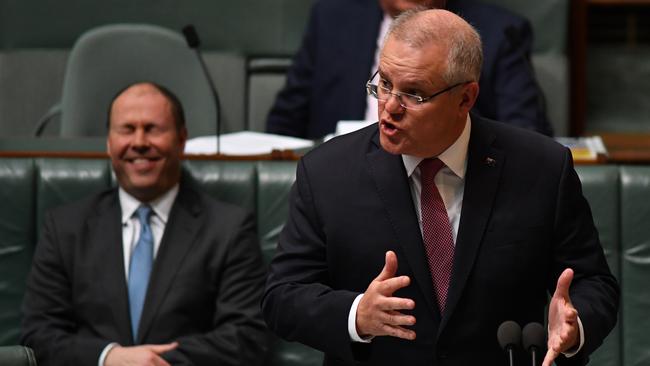
The scandal’s timing is bad for Albanese’s vital campaign to hold on to the ALP seat of Eden-Monaro on July 4 and is unlikely to be gone by a federal election that could be as early as October next year.
Scott Morrison and Attorney-General Christian Porter sought to corner Albanese over the scandal by highlighting another Labor branch intervention — that of NSW over cash in shopping bags and Chinese influence — and pointing to the Opposition Leader’s role in naming Labor’s parliamentary committee chairmen. The Prime Minister did not buy into the argument about Byrne’s continuing suitability for the role of intelligence committee deputy but used Byrne’s own description of the investigation as a “corruption inquiry”.
Albanese tried to push back with the line that it was Morrison who decided the chairmen and deputy chairmen of committees, which is not realistic but another attempt to keep him at arm’s length from the ramifications of the scandal.
Such distancing isn’t going to save Albanese embarrassment if Byrne does go or if further compromising texts between Byrne and Somyurek emerge.
Albanese acted quickly and correctly to snuff out Somyurek but he can’t escape the federal fallout from a state war.




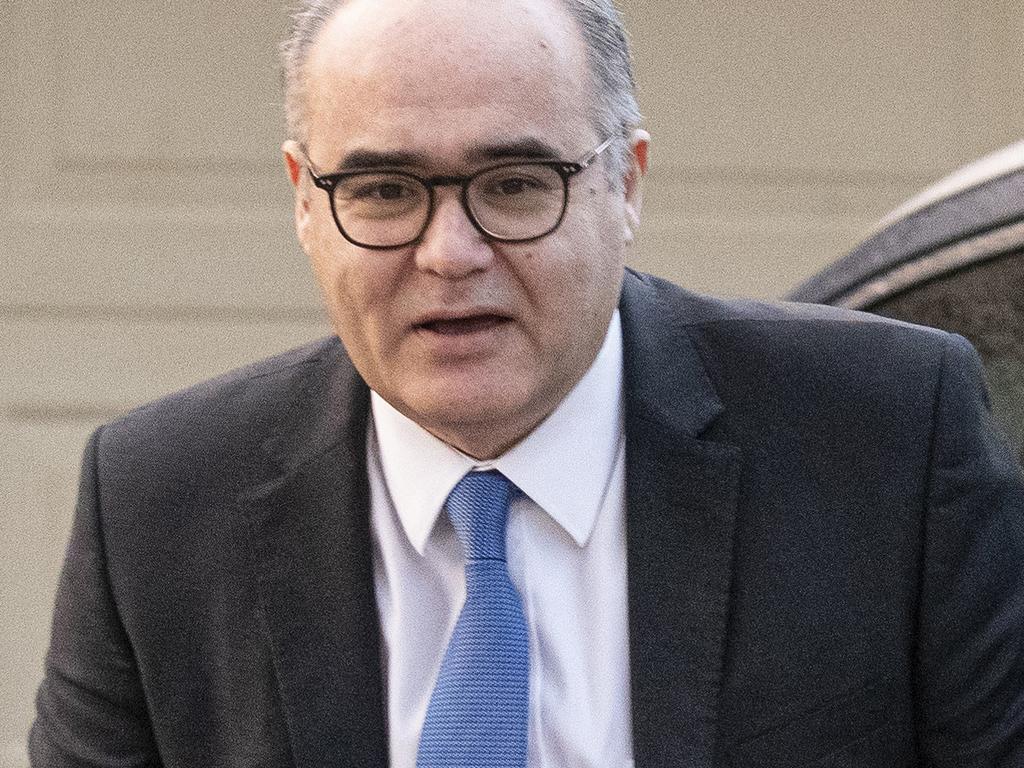
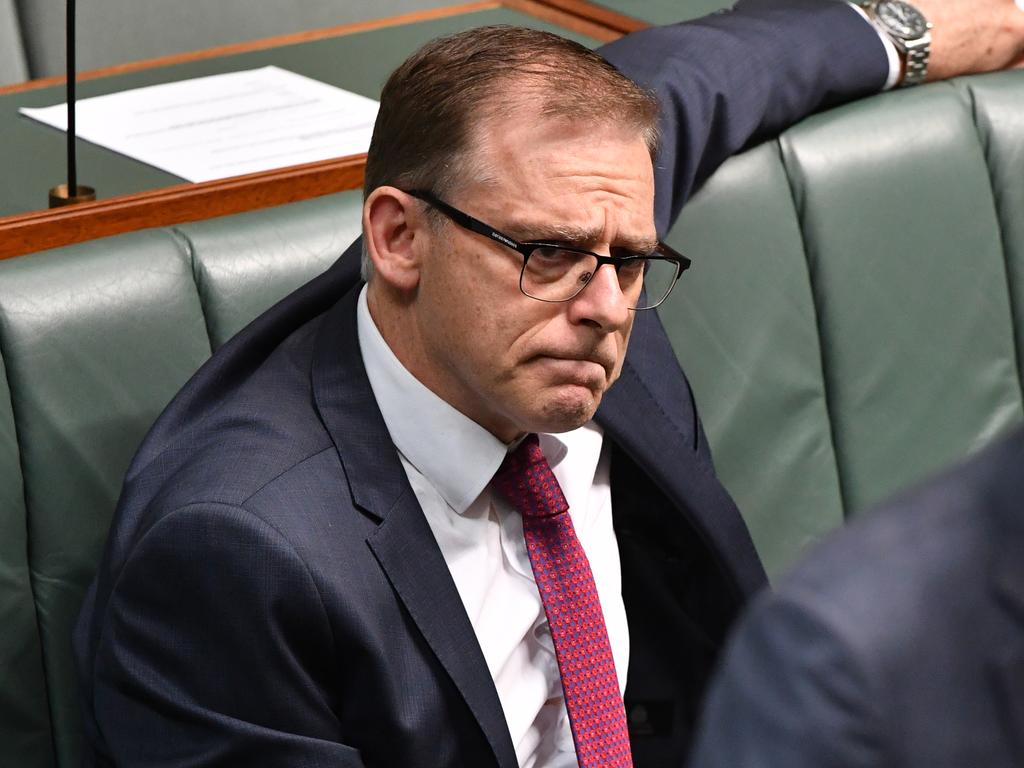


There are immediate and far-reaching consequences for Anthony Albanese and the federal parliamentary Labor Party as a result of a corruption inquiry into the Victorian branch of the ALP and the largest national organisational intervention in 50 years.